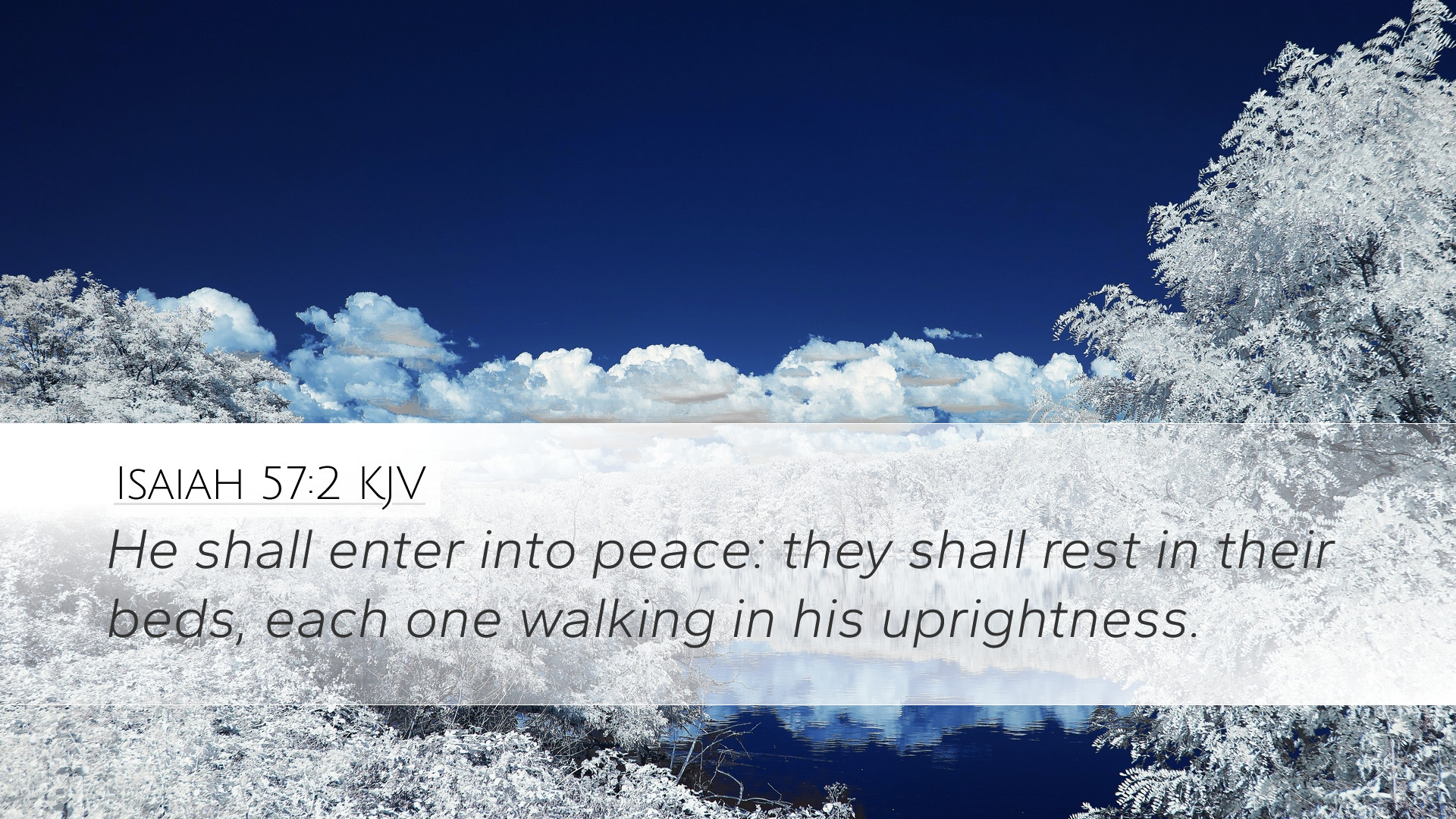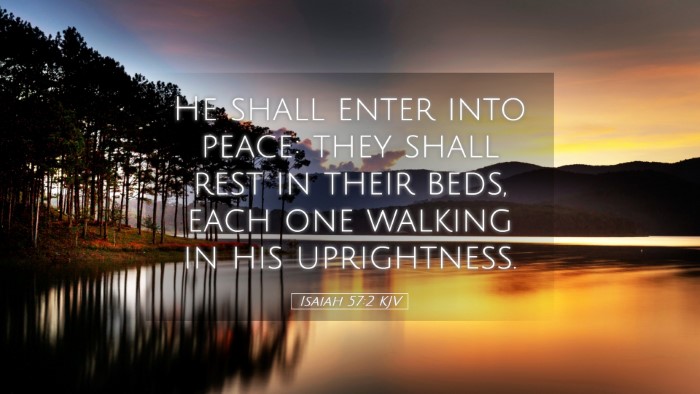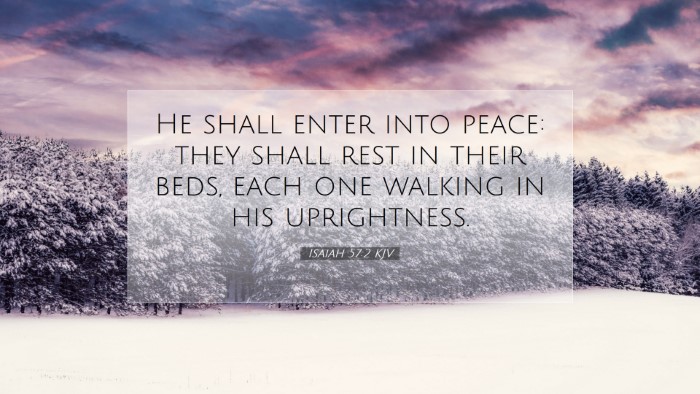Commentary on Isaiah 57:2
Verse Context: Isaiah 57:2 states, “He shall enter into peace; they shall rest in their beds, each one walking in his uprightness.” This verse offers a profound insight into the theme of peace and righteousness in the context of God's dealings with His people. It serves as a reassurance and a promise for those who are faithful and righteous in their walk before God.
Interpretation and Significance
In this verse, the 'righteous' are depicted as those who have lived their lives in accordance with God's commands. The promise of peace is particularly significant in the Hebrew context, where peace (Shalom) encompasses not just the absence of conflict, but wholeness and well-being. This peace is contrasted against the tumultuous conditions often surrounding the faithful in a world that is often hostile to righteousness.
Insights from Matthew Henry
Matthew Henry observes that the righteous, even amidst death, experience the ultimate peace that comes from their relationship with God. He emphasizes the importance of uprightness and how it leads to a restful existence, both in life and in death. Henry notes:
- Rest in Death: The reference to “rest in their beds” suggests a peaceful state of death, indicating a transition into eternal rest for the faithful.
- Comfort in Times of Distress: Those who walk uprightly find solace in God during challenging times; it’s an assurance that they will be received into peace.
Insights from Albert Barnes
Albert Barnes provides a deeper exposition of the peace offered to the righteous. He articulates that the concept of entering into peace signifies an entrance into a state of divine favor. For Barnes, the implications of this peace are twofold:
- Covenantal Blessing: The notion of peace aligns with covenantal themes present throughout Scripture where righteousness leads to blessing.
- Postmortem Assurance: Barnes suggests that the verse not only speaks to the present life but also assures the faithful of their eternal destiny post-death.
Insights from Adam Clarke
Adam Clarke highlights the personal nature of this promise and underscores the moral implications of living an upright life. Clarke contends that:
- Personal Peace: Each individual who walks uprightly is afforded peace, thereby assuring that the promise is not just collective but personal and applicable in immediate life.
- Contrast to the Wicked: Clarke further draws a contrast between the righteous and the wicked; the former receive peace, while the latter are consumed by turmoil throughout life.
Theological Reflections
This verse encourages theological reflection on the nature of God’s justice and mercy. It serves as both an admonition and a promise. The righteousness of believers is underlined as essential for experiencing God’s peace, which leads to questions of personal integrity and communal righteousness among the church.
Applications for Pastors and Leaders
From this verse, church leaders and pastors can derive several key applications:
- Encouragement for the Faithful: Provide assurance to congregants that living righteously brings peace and that God honors this commitment.
- Teach on Righteous Living: Emphasize the practicalities of uprightness in daily living to foster a community grounded in integrity.
- Addressing Death: Offer hope and comfort regarding death, ensuring that members understand the promise of eternal peace through Christ.
Conclusion
Isaiah 57:2 encapsulates a profound truth regarding peace, righteousness, and the overarching theme of God’s faithfulness to His people. The insights drawn from notable public domain commentaries enhance our understanding of this verse and deepen our appreciation for the peace promised to the upright. As believers, this assurance calls us to live upright lives, confident that our fidelity to God yields the ultimate reward of peace, both now and in eternity.


